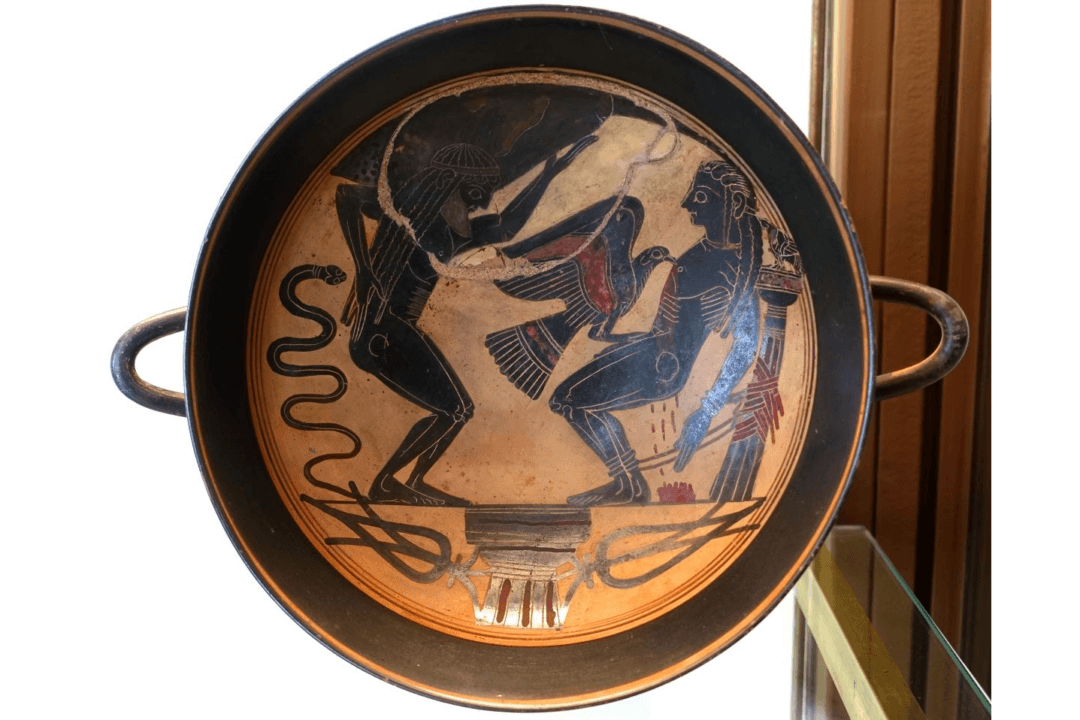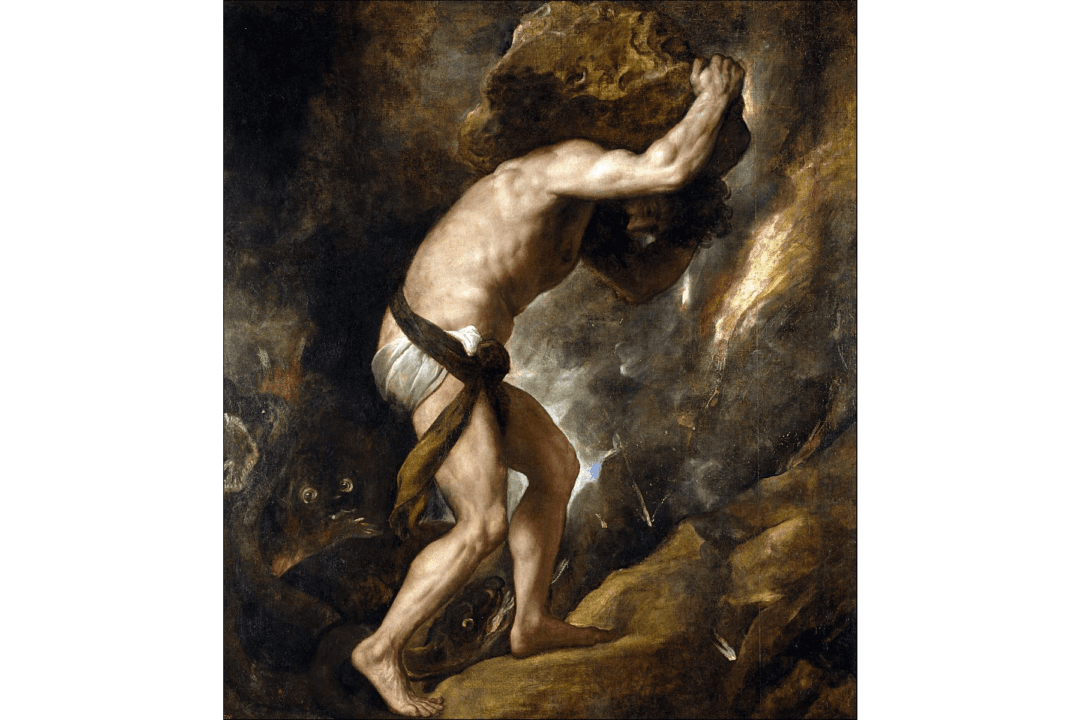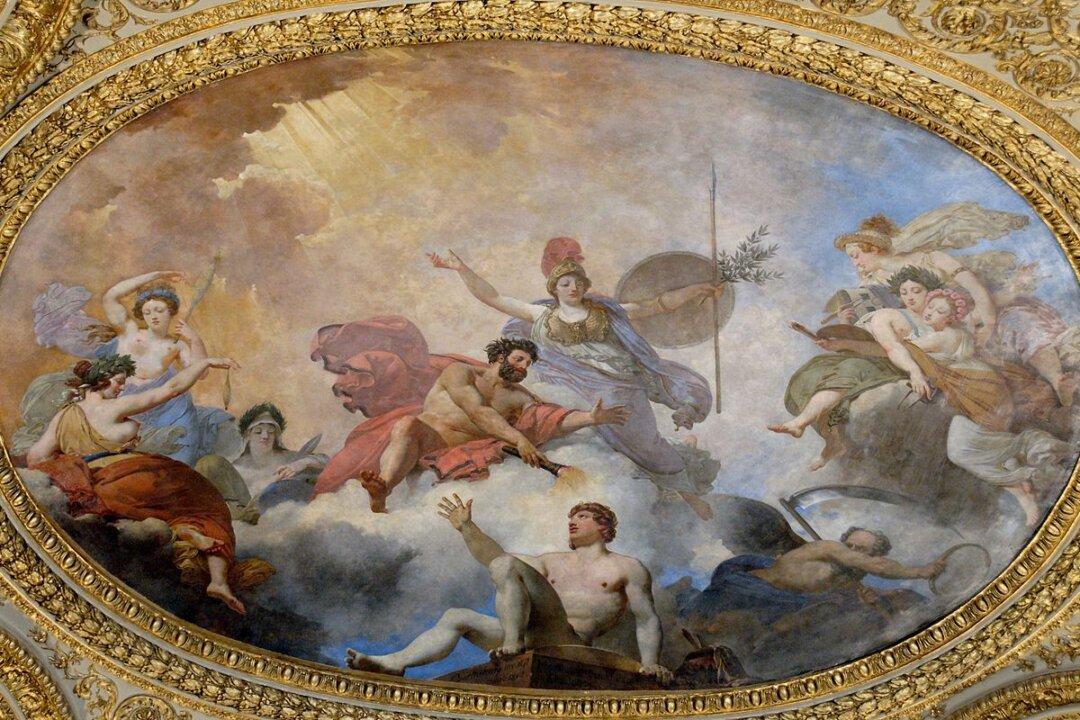Prometheus, a Truly Liminal Being
Prometheus is a liminal figure, neither a god nor a human; he is also liminal in the sense of being ambivalent in a moral sense. It would be hard to say whether he is a hero or a villain. Is he good or bad? He created and tried to help humanity, but, on the other hand, he was a trickster, as he blatantly defied the king of the gods.Zeus stood for order and justice, and justice requires that the punishment must fit the crime, a concept called “contrapasso.” Pandora’s box was a contrapasso punishment since it was a trick matching the original trickery that Prometheus perpetrated on Zeus.
Therefore, trying to undermine Zeus was to undermine the cosmos. This was no minor matter; it had huge cultural implications in the West, and especially for the Romantics at the beginning of the 19th century. For them, Prometheus, suffering at the hands of Zeus, became a potent symbol for writers like Goethe and Byron. They saw in him the image of the solitary genius defying tyranny.

Most famously, Mary Shelley subtitled her novel “Frankenstein” as “The Modern Prometheus.” She cast Victor Frankenstein as a tragic figure whose pursuit of forbidden knowledge (what in the myth is fire) unleashes forces he cannot control. Her tale warns of the dangers of freedom untethered from moral responsibility.
To this day, then, Prometheus remains a mirror for our times. The Frankenstein monsters that result from giving man fire—COVID-19, nuclear weapons, nonbiodegradable plastics, AI, and so on—are legion and surround us. Yet the myth endures because it encapsulates a paradox: our yearning for individual liberty and the freedom to create our own utopias set against our simultaneous demand for real order and justice.
Prometheus’s Punishment

Zeus had Prometheus chained to a rock in the Caucasus mountains, where an eagle ate his liver every day. As an immortal being, he could not die, and so his liver regenerated nightly, creating a daily and eternal torment.
The Caucasus Mountains, a wild and remote borderland in Greek geography was the perfect backdrop for Prometheus’s punishment—an edge-of-the-world (or liminal space) exile that symbolized not only his personal torment but also the perilous price of defying cosmic order. He was literally cast out to the outer reaches of social existence. The Romantics clearly saw this as the abode of Satan depicted in Milton’s “Paradise Lost.”
It was an eagle, Zeus’s sacred bird, that tore at Prometheus’s liver. The eagle was a symbol of his kingship, power, and dominion—an avatar of his authority. Thus, the ordering of the daily punishment was not random; it was a visible sign that Zeus himself oversaw and enacted the punishment. Eagles are the sky’s greatest predators and so reflected the inescapable reach of Zeus’s power at the limits of the world. This parallels what Satan finds in Milton’s Hell. Even there, God can reach him.
In addition, it’s significant that it was the liver and not, say, the heart, that was destroyed. In Greek medicine and myth, the liver was considered one of the most vital organs, linked to life force and renewal (similar to the heart in later Christian symbolism). This daily wounding and healing underscored the inescapable, self-renewing nature of cosmic punishment.
In many ancient cultures, including Mesopotamian and Greek ones, the liver was a divine or prophetic organ. Hepatoscopy—reading omens in the livers of sacrificed animals—was an important practice. By attacking Prometheus’s liver, Zeus was also striking at the source of Prometheus’s foresight and cunning. Contrapasso indeed!
To sum up: The eagle, Zeus’s sacred bird, tore at Prometheus’s liver—a symbol of life and foresight—day after day. It was a punishment of eternal recurrence, a living reminder that even the gift of fire couldn’t outpace the watchful eye of divine authority.
Cosmic Threats
The cosmic order that Zeus established was not as perfect as he might want. Two threats emerged to destabilize and destroy the cosmos. Both threats, in some traditions, were anticipated by Prometheus.The first threat was that just as the gods had defeated the Titans, so would the gods be defeated by the giants—unless a mortal was born who would assist in the war against the giants. The mortal whom Zeus then caused to be born by fathering him was Herakles. Herakles—semi-divine, semi-mortal—was also a liminal being and one who could save the cosmos.
Certainly, there are many contrasts between Herakles, a hero of war, and Christ, the Prince of Peace, but in this mythical sense of the salvation of the cosmos and the union of the divine with the mortal, there is a parallel.
The second threat involved a prophecy. In order to save the cosmos, Prometheus must reveal a secret prophecy: Were Zeus to couple with the sea-goddess, Thetis, her son would be greater than his father. In this case, the order, the law, the justice of the cosmos would be shattered.

To learn this secret, Zeus sends Herakles on the vital mission to barter with Prometheus for the information, and so avoid the prophecy’s fulfilment. One liminal being goes to rescue another. Prometheus’s release by Herakles was not simply an act of divine mercy, but a hard-won bargain. On revealing the secret to Herakles (and so Zeus), Herakles shot and killed the eagle with an arrow, and then broke the chain holding Prometheus.
If the eagle represents perpetual punishment, then the arrow—a single arrow—represents finality and mortal precision. It interrupts eternity with a single, decisive act. In the same sense that Christ’s one decisive act (on the cross) frees mankind from eternal condemnation, so here the eternal punishment is broken by the liminal figure who frees the original perpetrator from his hubris. Yes, Prometheus was set free.
The cosmos needed Prometheus, as it turned out; it needed the humans he created, too. Indeed, the cosmos depended on them and on the intermediating being who was born in order to stop the spread of chaos, which is another name for evil.
The Prometheus myth presents a profound paradox. He is a liminal character, certainly, but is he good or bad? To the Romantics, he was good—a liberator, an archetype, in fact, for the whole Enlightenment project of freedom from religion and social conventions.
From the Christian perspective, St. Augustine explained that while sin is evil, in his foreknowledge God knew that sin would eventually be turned to good. This Augustine called “the fortunate Fall.” The turning to good is accomplished through Christ, who, like Prometheus, had to suffer.

In the Greek myth, Prometheus has to suffer before his redemption. This is also the human mind’s redemption, for that is what forethought offers. Our thinking is humanity’s cross, and, through it, there is suffering and there is also hope.








